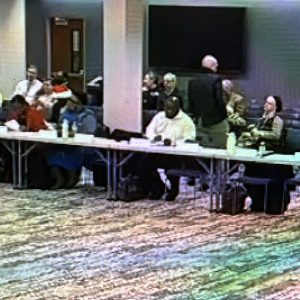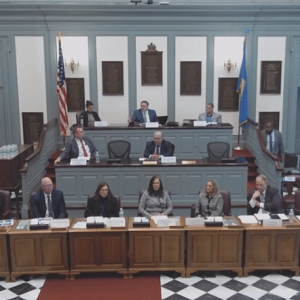
The Fines and Fees Task Force’s findings were approved by the city council last week. (Photo by designer491/iStock Getty Images)
Water fees have risen the most of any city of Wilmington fees, and the city is increasing its use of the water/sewer fund to pay for general city expenses, according to a city task force report.
The report said, among other findings, that using fines and fees is a low-reward system.
The 16-page report, conducted by Wilmington’s Fines and Fees Task Force, is about a year-and-a-half in the making. The group was created in October 2022 to review fees, fines and administrative sanctions administered by the city, make findings and potentially make recommendations to the city council for changes.
The Wilmington City Council voted last Thursday to approve the final report, which says the fines have “high pain and low gain.”
That’s because over the last two decades, the city has increasingly used fines and fees to generate revenue, shifting more of the burden of paying for city services to people with the least ability to pay.
“As the costs of fines and fees rise, more people have had difficulty paying, causing financial hardship, especially among lower-income residents,” the report states.
Plus, late payments or failure to pay and increased costs of collection have impacted Wilmington’s bottom line.
The task force believes fair and equitable budgeting is a solution.
That means revising the city’s budget to better align revenue with sources that have the ability to pay.
It also means Wilmington must address the needs of low-income groups to ensure universal access to city services.
Here are the 13 key findings outlined in the report:
- Water bill fees have grown more than any other source of revenue.
- New Castle County’s payment for sewage services has been growing much slower than direct user fees paid by water customers.
- Water customers have made up the difference.
- The city uses the water/sewer fund to pay for both water/sewer expenses and general city expenses.
- The city is increasing its use of the water/sewer fund to pay for general city expenses.
- A growing portion of the water/sewer Fund is paying for general city expenses.
- Wilmington’s population hasn’t grown at all, and resident incomes aren’t growing as fast as fees are going up.
- Wilmington’s higher water bills have outpaced many residents’ ability to pay.
- The city uses its most harmful collection tactics to collect overdue bills from residential accounts.
- Fines contribute a small but growing portion of city revenue.
- Generating revenue from fees and fines is time-consuming and expensive.
- A very large portion of fine revenue goes to pay outside contractors.
- Booting and towing for overdue parking tickets generates little revenue and harms Wilmington’s low-income residents the most.
The 13th finding was actually the focus of a legislative bill brought before the General Assembly in April that is currently stuck in committee.
RELATED: Tow companies with predatory practices under heat
House Bill 351, sponsored by Rep. Ed Osienski, D-Newark, would create a slew of requirements for the towing and storage of vehicles without the consent of the owner or operator.
“Council and the administration now have the opportunity to act on making much needed reforms and creating an equitable and sustainable city budget,” said Wilmington City Councilwoman Shané Darby, District 2, in Thursday’s meeting.
Wilmington’s Fines and Fees Task Force made the following four recommendations, which would need to be considered and approved by the city council:
1. Stop harmful collections practices:
- Stop booting and towing cars to collect payment for parking and red-light tickets.
- End water shut-offs for over-due water bills of properties occupied by vulnerable populations.
- Stop foreclosures for home-owners with over-due water bills.
- End penalties for people who aren’t paying because of limited income.
2. Revise contracts to reduce harms and reduce costs
- Parking ticketing and collections contract.
- Red Light ticketing contract.
3. Right-size fees to cover only the costs of providing the service
- Water bills.
- Vacant property fees.
- Business license fees.
- Rental property registration fees.
4. Develop affordability programs where needed to provide access to city services, including clean water and sanitation
Read the task force’s full report here.
RELATED STORIES:

Raised in Doylestown, Pennsylvania, Jarek earned a B.A. in journalism and a B.A. in political science from Temple University in 2021. After running CNN’s Michael Smerconish’s YouTube channel, Jarek became a reporter for the Bucks County Herald before joining Delaware LIVE News.
Jarek can be reached by email at jarek@delawarelive.com or by phone at (215) 450-9982. Follow him on Twitter @jarekrutz and on LinkedIn.
Share this Post












